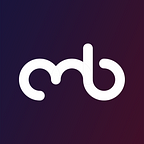How is Myers-Briggs Personality Type Useful in Everyday Life? Psychologist Dr. Gordon Weighs In
John Hackston, the chartered psychologist who heads thought leadership at The Myers-Briggs Company, had a fascinating conversation with Dr. Aqualas Gordon, a professor of psychology at Maryville College, who earned his Ph.D. in Counseling Psychology at the University of Texas-Austin and has also taught at the University of Central Missouri.
In this series, Hackston discusses with Gordon his unique interest in the Myers-Briggs Type Indicator® (MBTI®) instrument, and his views on personality type and its applications in education, clinical psychology and other areas.
This article highlights the portions of their discussion that focus on why type may be the best approach to modeling the complexity of human personality, and how these insights can be applied in everyday life.
To watch videos of the interview, check out How is Myers-Briggs personality type useful in everyday life? and Personality as a dynamic construct
AG: I’ve really been a fan of some of Dario Nardi’s work, at least this idea that personality is this chaotic system.
And for folks who still have a lot of doubt about the Myers-Briggs or function dynamics in general, I would really ask them to think about how personality isn’t this simplistic construct. Really it is this dynamic and chaotic construct, and that means we’re never going to be able to predict it moment to moment. The best we can do is begin to see those patterns.
And whether they knew it or not, Jung and Myers and Briggs were talking about patterns of behavior, patterns of thought, patterns of feeling — and that’s got to be the way that we think about personality.
What are the patterns of a person? It’s not even really about what the traits are, because that starts to lose any meaning when you take it off the page.
JH: So looking at the whole person in terms of their patterns of behavior, in terms of the dynamics, in terms of going deeper into the possibilities in there?
AG: Exactly.
JH: We’ve talked quite a lot about the MBTI, we’ve talked about type. Clearly, you’re a fan of the type approach, which is good to hear. If you had to say in a sentence or two how type is useful and why you might recommend it to other people, what would you say?
AG: I’d say that as far as I have seen, from an academic and from a clinical perspective, Jungian functionality, the Myers-Briggs, or however it’s being packaged is probably the best and most successful and accessible way to understand a person in terms of what might be moving them.
You’re never gonna really know, people are chaotic. But I think it gives you a sense of understanding.
I go back to Thinking and Feeling. This person makes decisions with their feelings, and this person makes decisions with their thoughts, with their logic. I think that’s just really accessible to people. And I think that the test has this kind of deep complexity that folks don’t understand, where you can start thinking about the functions and you can start thinking about how they interact with each other.
And so for me, going from soup to nuts, as they say, the test does a lot of work. It’s a good way to categorize people. It’s a good accessible way for folks who don’t know much and want to learn about themselves or other people.
And if you dig in and you give it the time and you do the real research you’ll see that it is actually a great tool for academics.
I’m working on seeing how useful it can be in clinical uses as well.
Read about how Dr. Gordon is pioneering use of the MBTI instrument in clinical practice.
